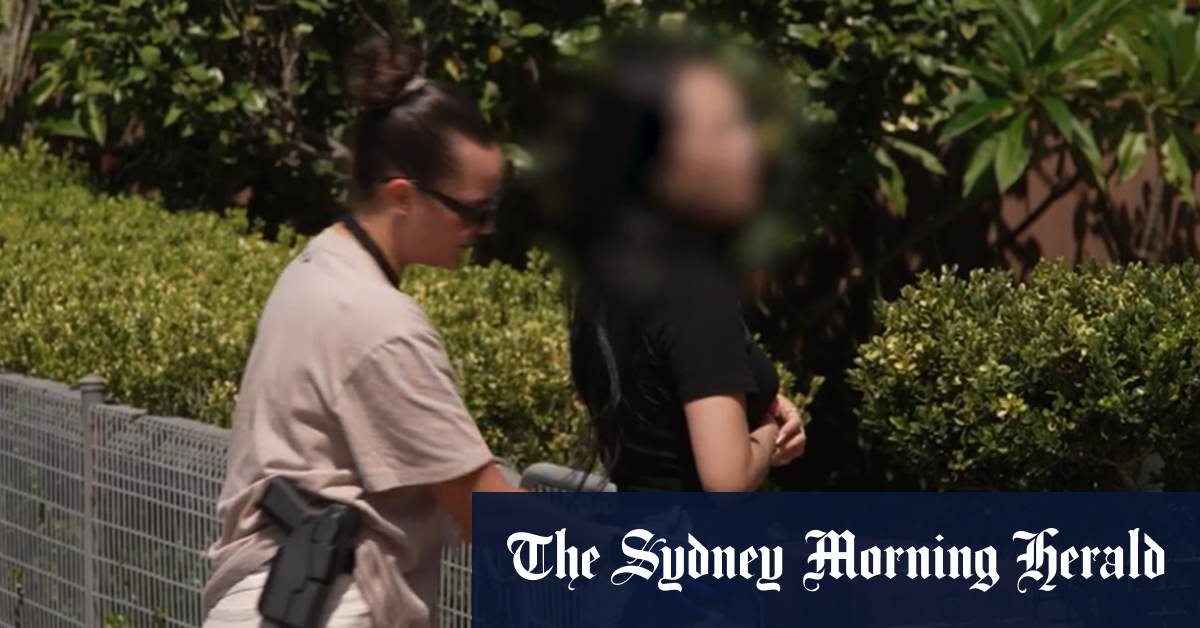Australia
Sydney woman arrested over alleged $7m money laundering ring

A Sydney Woman Allegedly Tied to Millions in Illegal Tobacco Money Laundering
A 36-year-old Sydney woman, Xiaoli Xue, has been arrested and charged in connection with an alleged $7 million money laundering operation linked to an international organized crime syndicate. The investigation, led by the NSW Police Financial Crimes Squad, uncovered a sophisticated scheme involving fraudulent mortgages, illegal tobacco products, and ties to a broader criminal network. Xue’s arrest on Thursday led authorities to raid multiple properties, yielding significant seizures, including illegal tobacco products, cash, a luxury vehicle, an illegal gambling den, and an unlicensed tattoo parlour. This case highlights the intricate methods criminals use to launder money and the challenges law enforcement face in combating such activities.
The Discovery and Arrest: Unraveling a Complex Web of Crime
The arrest of Xiaoli Xue was the culmination of a months-long investigation by Strike Force Karawina, established in June 2024 to probe the alleged laundering of illegal tobacco funds through property transactions. Detectives from the NSW Police’s State Crime Command targeted an organized crime syndicate with roots in South-East Asia. During the operation, police seized $2.5 million worth of cigarettes, $28,000 worth of loose-leaf tobacco, over $100,000 in cash, and a luxury Mercedes GLC 300. Additionally, authorities uncovered an illegal gambling den and an unlicensed tattoo parlour, exposing a network of illicit activities tied to the suspect.
Xue was taken into custody at her Berala home and transported to Auburn Police Station, where she was charged with 20 offences, including dishonestly obtaining a financial advantage by deception, knowingly dealing with the proceeds of crime, and knowingly dealing with the proceeds of crime with intent to conceal and defraud. She was denied bail and appeared at Burwood Local Court the following day. The arrest and subsequent raids were the result of a collaborative effort involving the NSW Health Tobacco Control Unit and the Australian Border Force, underscoring the multi-agency approach required to tackle such complex criminal enterprises.
Money Laundering Through Fraudulent Mortgages: A Lucrative Scheme
At the heart of the investigation is the alleged laundering of nearly $7 million through seven fraudulent mortgages since 2020. According to authorities, Xue secured 10 loans from various banks using fraudulent documents that inflated her income, allowing her to obtain the mortgages. These mortgages were then used to funnel money from illegal activities, primarily the illegal tobacco trade, into the financial system. By making mortgage repayments, Xue allegedly concealed the origin of the funds, effectively legitimizing the proceeds of crime for the benefit of the broader criminal network.
This method of money laundering is particularly concerning, as it exploits vulnerabilities in the financial system and underscores the need for stricter regulations and oversight. The use of fraudulent mortgages to disguise the flow of illicit funds highlights the evolving techniques employed by organized crime groups to remain undetected. The case serves as a stark reminder of the sophistication and scale of modern financial crime.
The Broader Implications: Combating Organized Crime
The charges against Xiaoli Xue are part of a larger effort to disrupt an international crime ring with ties to South-East Asia. The illegal tobacco trade is a lucrative business, with millions of dollars generated annually through the sale of contraband products. These profits are often reinvested into other criminal ventures, fueling further illicit activities and undermining public health initiatives aimed at reducing tobacco consumption.
The success of Strike Force Karawina in unraveling this complex web of crime demonstrates the critical role of law enforcement in combating organized crime. The seizure of illegal tobacco products, cash, and other assets not only disrupts the financial flow of the syndicate but also sends a strong message to those involved in such activities. The collaboration between state and federal agencies further emphasizes the importance of a coordinated approach in addressing transnational crime.
The Charges and Their Significance: A Blow to Organized Crime
Xiaoli Xue faces serious charges, including multiple counts of dishonestly obtaining a financial advantage by deception, knowingly dealing with the proceeds of crime, and knowingly dealing with the proceeds of crime with intent to conceal and defraud. These charges reflect the severity of the alleged offences and the significant role Xue is accused of playing in the money laundering operation. By allegedly using fraudulent documents to secure loans and launder funds, Xue is said to have facilitated the activities of a broader criminal network.
The refusal of bail for Xue signals the seriousness with which authorities view her alleged crimes. Her appearance at Burwood Local Court marks the beginning of what is likely to be a lengthy legal process, with potential consequences including substantial fines and imprisonment. The case also raises questions about the measures in place to prevent such fraud and whether more could be done to detect and prevent similar schemes in the future.
Conclusion: A Victory for Law Enforcement, A Lesson for All
The arrest of Xiaoli Xue and the subsequent raids on properties linked to her alleged activities represent a significant victory for law enforcement in the ongoing battle against organized crime. The case highlights the ingenuity of criminals in exploiting legal loopholes and financial systems to further their illicit goals. At the same time, it demonstrates the determination and effectiveness of authorities in uncovering and disrupting such schemes.
As the investigation continues, the case of Xiaoli Xue serves as a reminder of the importance of vigilance and collaboration in combating financial crime. The seizure of illegal tobacco products, cash, and other assets not only disrupts the operations of this particular syndicate but also contributes to broader efforts to reduce the prevalence of contraband goods and the associated health risks. The success of Strike Force Karawina underscores the critical role of specialized units in tackling complex criminal enterprises and serves as a powerful deterrent to those who would seek to engage in similar activities.











